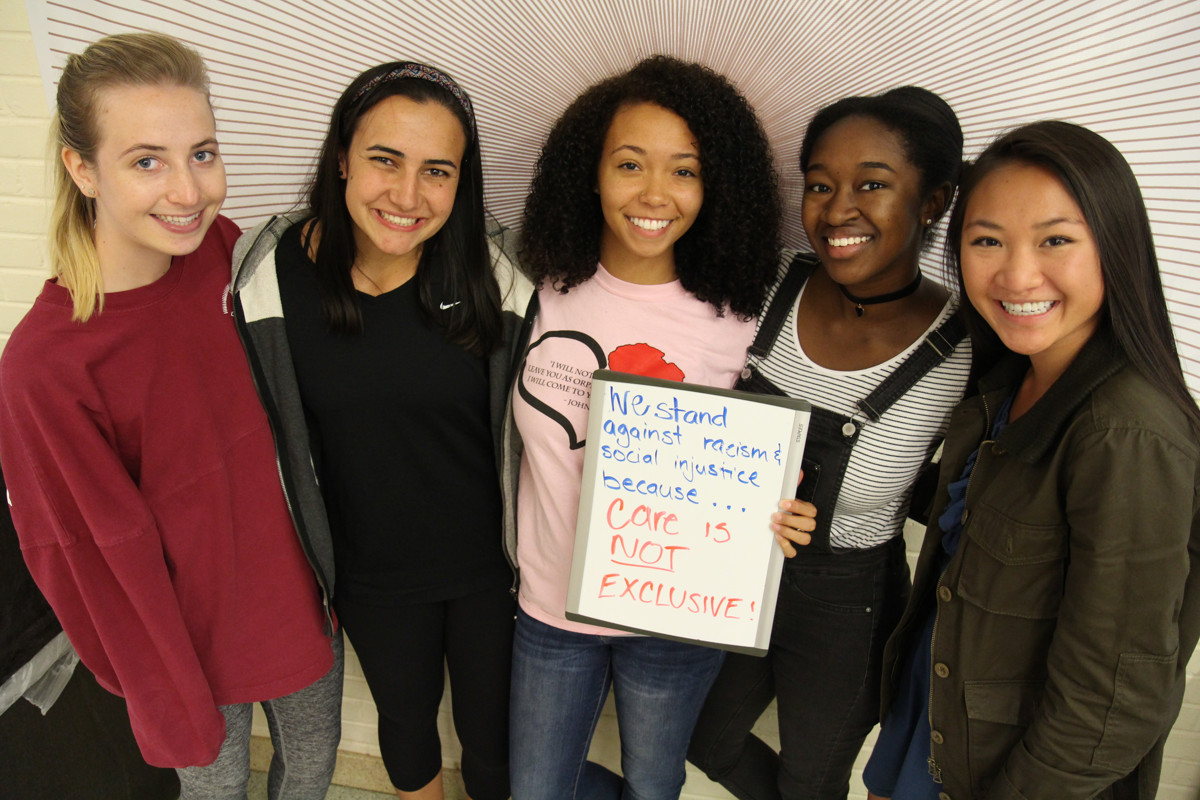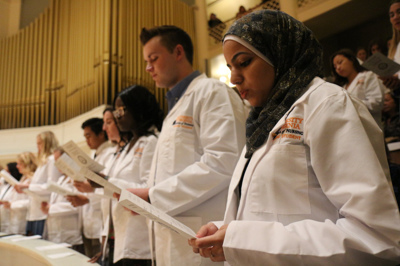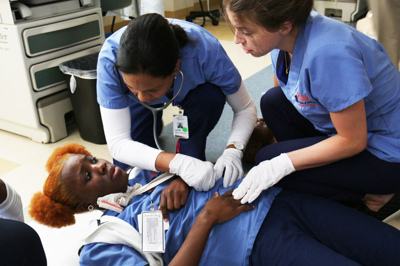

Photograph by Christine Kueter, School of Nursing
On May 25, 2020, Mr. George Floyd was murdered at the hands of police in Minneapolis, Minnesota. Social unrest erupted across the Nation in response and included our own reckoning at the University of Virginia School of Nursing (UVA SON). While we had been making steady gains in our Inclusion, Diversity and Excellence Achievement Initiative (IDEA), we were not making the deep substantive changes necessary to truly become an antiracist school. An Antiracism Working Group comprised of students, faculty and staff in the SON was mobilized and met weekly throughout the summer of 2020 and into the fall to develop further concrete actions to reach this aspiration.
The subgroup that focused on "Addressing Racism and Other Bias in the Hospital" was one of four smaller groups that brainstormed and developed strategies. Its guiding Problem Statement was:
Rooted in a deep history of racism and oppression at the University and the surrounding local context, acts and ideas of racism and other forms of bias occur in the learning environments, including the UVA Health Medical Center, other clinical settings and the School of Nursing classrooms our students experience. These acts can be perpetrated or experienced by students, clinical or auxiliary staff, patients, family members, or other visitors or can be a result of structural underpinnings, systemic policies or procedures. Faculty, clinical instructors, preceptors and others who supervise/mentor students need to prepare our students to address racism and other forms of bias, as a target of, witness to, or perpetrator of this behavior. These individuals also need preparation to effectively implement this role. Our ultimate goal is to prepare our students with the tools to be leaders in actively identifying and dismantling racism and other biases in whatever context they practice.
As a preliminary step, this subgroup felt it to be essential for nursing students and other stakeholders to have a background understanding of the history of race and racism in our local context before engaging in clinical practice. The roots of the racism and other forms of discrimination that are seen in our Health System today are rooted in this deep history. We began by educating ourselves and at the same time, amassing resources to share on various historical topics. We decided to create a repository for resources and materials that would form the corpus of knowledge that UVA nursing students, faculty, and UVA Health nurses should have to better understand the communities we serve.
A Web-based Guide for UVA Nurses
In order to provide equitable, appropriate and culturally responsive care to our patients in the UVA communities, it is crucial to have an awareness of our deep history of racism and oppression in the region, at our University, and in our School of Nursing. This guide contains resources to establish a foundation for awareness and understanding of the context in which we practice. Its purpose is to better understand the roots of racism and white supremacy in order to actively dismantle them. These are the first steps to providing excellent and equitable care for our patients from a place of cultural humility. This web-based guide is meant to be seen as a basic set of references and not exhaustive.
References include:
Local and Regional History
History of UVA Related to Health and Health Care
History of Racism in the Health System
Issues of Race and Racism the School of Nursing

Photograph by Christine Kueter, School of Nursing
The UVA School of Nursing is a learning community rooted in compassion and respect. As a community of students, faculty, and staff, we value:
- Equity: We stand firmly for equity, inclusion, and diversity and against racism and social injustices
- Trust: We are a community of trust and integrity
- Excellence: We pursue excellence in nursing practice and in teaching and learning. Learning is lifelong.
- Collaboration: We all thrive when the environment is healthy, respectful, and caring
- Knowledge: We are committed to advancing science and developing evidence-based solutions that improve health, health equity, and health care

Photograph by Christine Kueter, School of Nursing
- Ren Capucao
- Cat Elmore
- Susan Kools
- Michael Swanberg
- Dominique Tobbell
- Tori Tucker
- Barbra Mann Wall
- Malinda Whitlow
- Anna Woepke
- Web Design: Anne Chesnut
- Web Development: Worthy Martin and Doug Ross, Institute for Advanced Technology in the Humanities
- Funding provided by the the Jefferson Trust and UVA School of Nursing IDEA

